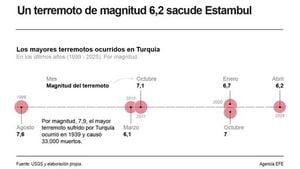Nissan Motor Co. has significantly revised its consolidated net profit forecast for the fiscal year ending March 2025, now projecting a staggering deficit of 700 billion to 750 billion yen. This announcement, made on April 24, 2025, marks a dramatic downward adjustment from the previous forecast of an 80 billion yen deficit and indicates the largest annual loss in the company’s history.
The automaker attributed this substantial loss to ongoing global sales challenges, which are forcing it to recognize impairment losses exceeding 500 billion yen. These losses stem from a reassessment of the value of production facilities across key markets, including Japan, North America, and Europe, as sales continue to lag.
Nissan plans to disclose its full-year financial results on May 13, 2025. In the lead-up to this announcement, President Ivan Espinosa expressed the company's resolve despite facing "difficult circumstances." He emphasized Nissan's strong financial foundation and robust product lineup, stating, "We are committed to rebuilding the company with strong will."
The company is grappling with significant declines in sales, particularly in the United States and China, where delays in launching new models have hampered its competitive edge. The revised forecast also includes a reduction in operating profit expectations, dropping from 120 billion yen to 85 billion yen, reflecting the ongoing sluggishness in sales.
As of the end of fiscal year 2024, Nissan reported having 2.2 trillion yen in cash reserves, underscoring that there are no immediate concerns regarding funding. However, the company is bracing for the compounded effects of high tariff policies from the Trump administration, which are expected to exacerbate an already challenging business environment.
In a further blow to its operational viability, Nissan's global production forecast for the fiscal year ending March 2025 has also been adjusted downward, now expected to reach 3,048,717 units—a 10.1% decrease compared to the previous year. This reduction in production is closely linked to the impairment losses and restructuring costs that the company anticipates will exceed 600 billion yen.
The restructuring expenses arise from necessary layoffs in the United States and Thailand, as well as compensatory costs for parts manufacturers affected by reduced production volumes. These changes reflect a broader struggle within Nissan to adapt to shifting market demands, particularly with hybrid vehicles and electric cars, where competition has intensified from emerging manufacturers in China.
Nissan's challenges extend beyond production issues; a proposed management integration with Honda, which was aimed at creating economies of scale, fell through in February 2025, leaving Nissan in a precarious situation. The company’s ability to navigate these turbulent waters will be crucial as it seeks to regain its footing in a highly competitive automotive landscape.
In summary, Nissan's revised financial outlook underscores the significant hurdles the company faces amid a global automotive market that is increasingly challenging. The combination of declining sales, rising competition, and operational restructuring paints a concerning picture for Nissan as it approaches its upcoming financial disclosures.




